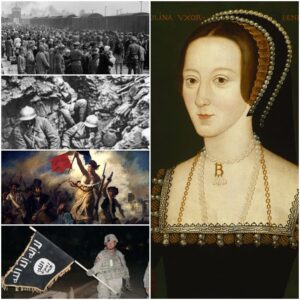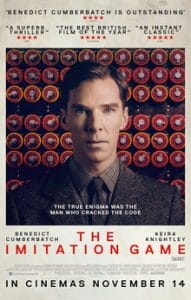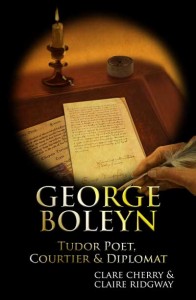 Thank you to Clare Cherry for writing this article for us today. You might remember that Clare wrote an article for us a few weeks ago, The Destruction of the Boleyn Family, and today’s article has been inspired by a few comments that were left on that article.
Thank you to Clare Cherry for writing this article for us today. You might remember that Clare wrote an article for us a few weeks ago, The Destruction of the Boleyn Family, and today’s article has been inspired by a few comments that were left on that article.
Over to Clare…
I wrote an article not that long ago in defence of the Boleyn family. They were pretty much destroyed in 1536, and I feel the way they are often portrayed means they seem to be morally destroyed over and over again. I could not see that this was fair from what we know of them from primary sources.
What I found interesting were some comments upon the contents of the article to the effect that these people died nearly five-hundred years ago and that it lacked perspective to care about them, particularly bearing in mind more recent atrocities such as the Holocaust and recent terrorist attacks. The implication being that to write in defence of historical characters meant there was a lack of concern for more current victims of violence and persecution.
Other comments suggested that there were other historical characters who were also demonised and needed rehabilitation as much as if not more than the Boleyns. The implication here presumably was that this meant a defence of the Boleyns was somehow misplaced.
I’m not going to regurgitate my previous article relating to the Boleyns and their treatment in 1536 and in some current works of fiction and non-fiction (you can read it here). I really want to explore the comments and the rationale behind them.
I’ll start by saying that writing about historical characters cannot imply a lack of sympathy and horror for the suffering of people who have died, and are dying, now and within living memory. To suggest that we cannot defend people who lived nearly five-hundred years ago because since then there has been the Holocaust seems a very strange and distasteful argument. We are all capable of caring about a great many things, and concern in one direction does not imply a lack of concern in another.
So why should we care about the Boleyns, or anyone else who died outside of living memory for that matter? If we are only supposed to care about people who died in the last eighty to a hundred years, does that mean we shouldn’t feel compassion for those poor souls who died in Pompeii? What about the countless people who died on the cross, or were guillotined in the French Revolution, or who died in the Spanish Inquisition? The passage of time can’t diminish the pain and terror they suffered at the time of their deaths, so I cannot see how the passage of time should diminish our capacity to feel compassion for their needless deaths. Once the Holocaust has fallen outside of living memory are we no longer supposed to care?
The fact is that people are interested in history and the tragedies which have occurred throughout it. Without that, then there would be no historians, no Anne Boleyn Files, no memorials for our war dead and so on and so on. We care, not only out of interest, but because we are human and are able to empathise with the victims of tragedy. To forget them would not only be sad and disrespectful, but it would also be a travesty of justice and a huge mistake for our collective future. Are we not supposed to learn from our past?
So why be interested in the Boleyns and why be interested in rehabilitating them? Well, there is no reason why the Boleyns are any more deserving of rehabilitation than any other historical personality who has been unfairly demonised. Ultimately it comes down to personal interest. Some people are primarily interested in the history of World War I and/or II. Some more so in the American Civil War or/and French and Russian Revolutions. Some in Tudor history. I happen to find Tudor history, and in particular the Boleyns, fascinating, and it’s this era which I have studied the most.
That brings me on to the second comment, which suggested there were other historical characters worthy of rehabilitation. I completely agree. But I cannot see that a defence of the Boleyns can be considered misplaced simply because they are not the only family/characters who have been vilified throughout history. Anyone is entitled to rehabilitate any historical character, and we can either agree or disagree with their views, depending on what they are based on.
There is a new buzz phrase doing the rounds, which has found its way into historical fiction; ‘alternative facts’. It supposedly gives historians/fiction writers the green light to say what they want with no or very little reference to primary sources. Indeed I have recently read a comment from a playwright who has written a play on the Boleyns saying, ‘I am suspicious of primary sources’. However, what’s the alternative? To make it all up as you go along? I have always assumed that alternative facts were lies, but apparently, I was wrong. Or at least I’m wrong for those who died long enough ago not to have relatives who can sue.
So I admit that I get angry when I see the suggestion that Anne Boleyn wasn’t interested in her daughter’s upbringing, that she was only interested in Elizabeth’s marriage negotiations for selfish reasons, that she only dressed Elizabeth in sumptuous clothing because in reflected well on Anne herself, and that she had no personal involvement or interest in her daughter’s life.
 I get angry when I see the old myths regurgitated time and time again with regards to Jane Boleyn’s involvement in the trials of the Boleyn siblings, and Thomas supposedly pimping his daughters to the King. It annoys me to see Anne and George portrayed as unpleasant caricatures as they are in Wolf Hall. It annoys me to see George portrayed as a rapist and wife abuser as he was in The Tudors.
I get angry when I see the old myths regurgitated time and time again with regards to Jane Boleyn’s involvement in the trials of the Boleyn siblings, and Thomas supposedly pimping his daughters to the King. It annoys me to see Anne and George portrayed as unpleasant caricatures as they are in Wolf Hall. It annoys me to see George portrayed as a rapist and wife abuser as he was in The Tudors.
I also get irritated when I see Henry VIII depicted as a rapist, or Francis Dereham come to that. It’s deplorable to see Wolsey commit suicide in The Tudors and to see Catherine Howard urinate on the scaffold. It’s shocking to see a man as talented as Cromwell depicted as someone who acted against the Boleyns and their friends out of petty malice and vengeance.
Some of the above is depicted in non-fiction; more in fiction. My article also dredged up the usual comment which we see over and over again, ‘IT’S FICTION, THE CLUE IS IN THE TITLE’! But anyone who thinks fiction is not influential in how historical characters are viewed is delusional, or naïve at best. Should we get irritated by what we see and read in fiction? Isn’t that just plain silly? Maybe, but the line between fiction and non-fiction is getting increasingly blurred especially when fiction writers suggest their work is based on fact and substantial research. Does the passage of time dehumanise them, or is the reality that we feel the passage of time entitles us to become desensitised to the fact they were human?
 I felt a massive sense of injustice with the recent film, ‘The Imitation Game’, with regards to the unfair and inaccurate depictions in it. The portrayal of the man who was vilified in it caused enormous distress to his family. They rightly challenged that depiction, which has largely been condemned.
I felt a massive sense of injustice with the recent film, ‘The Imitation Game’, with regards to the unfair and inaccurate depictions in it. The portrayal of the man who was vilified in it caused enormous distress to his family. They rightly challenged that depiction, which has largely been condemned.
Anne and George Boleyn defended themselves admirably at their trials. They can no longer defend themselves. They died unfairly, and for those of us who hate injustice, and who hate the ‘alternative facts’ written about them, we feel the need to take over the job which they started on 15th May 1536. Anne said on the scaffold, ‘If any person will meddle with my cause, I require them to judge the best.’ Well, I’m meddling and judging the best [Editor’s note from Claire Ridgway – Me too!]. When each and every one of us dies we’ll hope that those we leave behind will do the same for us.
Clare Cherry lives in Hampshire with her partner David. She works as a solicitor in Dorset, but has a passion for Tudor history and began researching the life of George Boleyn in 2006. She started corresponding with Claire Ridgway in late 2009, after meeting through The Anne Boleyn Files website, and the two Tudor enthusiasts became firm friends. They co-wrote George Boleyn: Tudor Poet, Courtier & Diplomat. Clare divides her time between the legal profession and researching Tudor history. Clare has written guest articles on George Boleyn for The Anne Boleyn Files, Nerdalicious.com.au, and author Susan Bordo’s The Creation of Anne Boleyn website.
 About George Boleyn: Tudor Poet, Courtier & Diplomat:
About George Boleyn: Tudor Poet, Courtier & Diplomat:
George Boleyn has gone down in history as being the brother of the ill-fated Queen Anne Boleyn, second wife of Henry VIII, and for being executed for treason, after being found guilty of incest and of conspiring to kill the King.
This biography allows George to step out of the shadows and brings him to life as a court poet, royal favourite, keen sportsman, talented diplomat and loyal brother. Clare Cherry and Claire Ridgway chart his life from his spectacular rise in the 1520s to his dramatic fall and tragic end in 1536.
George Boleyn: Tudor Poet, Courtier and Diplomat is divided into three sections – Beginnings, Career and Influence, and End of an Era – and topics include:
– George Boleyn’s poetry
– Personal attributes and social pursuits
– Religion
– George’s marriage to Jane Parker
– The Reformation Parliament and the League of Schmalkalden
– George the Diplomat
– The fall of the Boleyns, arrests and trials
– The aftermath of their fall
– George Boleyn, Dean of Lichfield, and the Clonony Castle Boleyns
The biography is fully referenced and includes chapter notes, bibliography and useful appendices.
Find out more about the book at getbook.at/george-boleyn